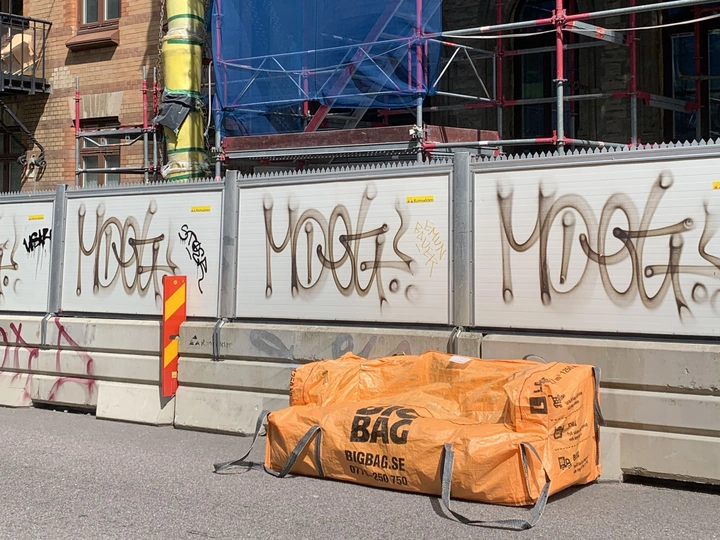Staying with the Rubble

Katharina Thurow
We are architects and friends, trespassing the boundaries of our discipline.
Cornelia Seemann studied architecture in Regensburg, Munich and Ghent, and has worked for Muck Petzet Architects and several other architecture offices. She holds a Master of Arts from the Technical University in Munich. In her Masters and beyond she focused on re-use in construction and its effects and requirements in architectural education. She was engaged with Concular GmbH and now works as consultant for Cradle to Cradle Engineering at EPEA GmbH. Cornelia teaches and researches at the professorship for Design and Construction of Florian Nagler at the Technical University in Munich. Her practice currently evolves around the optimization of deconstruction and designing with circularity.
Katharina Thurow met Cornelia when they started their studies in architecture in Regensburg. She has worked for b+ in Berlin. Katharina holds a Master of Science in Architecture from the Bauhaus University and a Master of Fine Arts in Design from HDK-Valand in Gothenburg. She is most comfortable at the crossroads of architecture, design and art, where she uses her training in the construction sector with a design-research perspective. Katharina lives in Berlin, and works freelance in architecture as well as in art production for the Artist Julius von Bismarck. She teaches as research assistant at the Bauhaus University in Weimar at the professorship for Emerging Technologies and Design of Thomas Pearce, where she studies crooked timber as a neglected material of wood industry.
We are witnessing the early stages of a transformation in construction industry. New standards will alter the ways we shape our surroundings, with energy-efficiency and renewable material at the heart of a multifaceted discussion. We too observe devaluation and depreciation of building stock that does not meet new standards. This shift many times results in demolition of buildings considered obsolete, with emission of material in consequence. Unwanted material released in deconstruction is the subject of our proposal. Practices to keep these substances in circulation are emerging slowly and struggle to have impact on architecture and its industry at large.
Those materials pose tricky questions: asphalt for example, emitted in efforts of unsealing, has good recycling properties – but its re-use implies sealing soil in another place. In other cases, reutilization is too costly or harbours aesthetic implications conflicting with favoured newness. These shadow places of transformation in construction industry is where our practices meet: repurposing the existing in an already built landscape with a design research perspective.
In the context of the LINA Fellowship, we propose a space to investigate these shadow places. By excavating at sites of deconstruction, we will unearth materials as well as fossil ideals and extractivist prospects in a transdisciplinary approach. Together with our LINA collaborators, we intend to offer two workshops, plus exhibition and publication, aimed at increasing knowledge of the challenges we face in transforming the ways we build. Through looking at obsolete and neglected material we will explore the constitution of aesthetic values and expressions, and how they determine re-use practices at the scale of material and component. In the workshops we physically work with material and its (site-specific) stories by methods of design research fostering an appreciation detached from economic conditions, recognizing the Earth as closed system.